The criminalisation of separatism
When Indonesian President Joko Widodo visits Australia this coming week, he may be surprised to find that the Aboriginal and Torres Strait Islander flags are designated official flags of Australia and are frequently flown at official occasions. I’m guessing this will be surprising to him because in Indonesia, flying the flag of the indigenous people of West Papua (the Morning Star flag), or flying the Moluccan flag, carries a heavy jail sentence with torture or beatings thrown in in as an extra deterrent. In April this year, Steven Italy a West Papuan from Timika made a speech at a prayer meeting asking people to pray for West Papua to become a member of the Melanesian Spearhead Group (a group of Melanesian nations with the major aim of fostering Melanesian culture). The meeting was broken up by Indonesian soldiers and police and Steven Itlay was arrested and charged with treason under Article 106 of the Criminal Code. It was reported that evidence seized at the meeting included a banner reading ‘Referendum’ and woven bags with the Morning Star flag pattern. He is still in jail, waiting trial. Over the years, hundreds of West Papuans have been jailed for the ‘crime’ of expressing a wish for independence. Earlier this year thousands of demonstrators were detained for peacefully demonstrating in support of a referendum on self-determination. Recently the Papua Police chief stated that students who called for independence would receive a criminal record on their police clearance letters, which will hamper them in getting jobs in the future, because ‘maintaining the unity of Indonesia’ was an obligation.
Not long after the referendum on Scottish independence, I had a bizarre conversation with an Indonesian man from Java. There had been recent arrests of West Papuans for raising their flag, and so I asked him why, if the UK government tolerated the nationalist Scottish flag, the St Andrew’s cross, the Indonesian government could not allow West Papuans to fly their Morning Star flag. He laughed and said that I was lying – that it must be a crime to fly the separatist Scottish flag in the UK, and the UK government would never allow such a thing. Although I told him that, if I wanted, I could wave the Scottish flag anywhere in the UK in perfect safety, he still insisted this was impossible and that I was trying to deceive him. Eventually I suggested that he phone the UK Embassy and ask if it’s a criminal offence to fly the Scottish flag in Britain. I’m not sure that he ever did, but it was a surprise to realise that the concept ‘separatism equals criminality’ was apparently accepted as the norm by Indonesians outside West Papua.
The criminalisation of expression of political aspirations by the Government of Indonesia is a blatant contravention of the Universal Declaration of Human Rights, and is also counter-productive. I’ve spoken to a number of Papuans who have been jailed for peacefully expressing their political beliefs about self-determination (including Jacob Rumbiak who was in jail in Indonesia with East Timorese leader Xanana Gusmao), and, not surprisingly, the jail terms had done nothing to change their minds about their wish for independence from Indonesia. If Indonesian politicians wonder why any Papuans would want to separate from Indonesia, they should visit West Papua and look at it with the eyes of a stranger. In Jayapura, for example, they would see that almost all the businesses are owned and staffed by non-Papuans brought in by the on-going transmigration program, while the Papuans sit on the steps outside supermarkets, shopping malls etc., selling newspapers and other small items, or sitting on the ground in the tarpaulin-covered fruit and vegetable market. Outside major towns, Papuans are often forced off their traditional lands, which are mined, logged, or cleared for agriculture (in particular palm oil plantations) with most of the profits flowing out of West Papua.
The massive military presence in West Papua is not conducive to fond thoughts towards Indonesia. When police or soldiers approach, many Papuans look at them with fear and resentment, as the only purpose for such a massive military presence in their land appears to be to intimidate them, as neighbouring Papua New Guinea can’t really be seen as a military threat to Indonesia.
Indonesia’s claims to West Papua are tenuous, and this is perhaps why it has criminalised expressions of desire for independence. In Mark Worth’s documentary Land of the Morning Star, which records West Papua’s independence struggle and the brutality by which it was crushed (watch it if you haven’t already –it’s on YouTube), the arguments justifying Indonesia’s actions seem to be 1) West Papua was a former Dutch colony, 2) a song was written saying Indonesia stretches from Sabang (in Aceh) to Merauke (in West Papua) and 3) a sham referendum was held, involving a tiny fraction of the population, voting under extreme duress. Compare this with the situation at Australian federation. When the former British colonies, Victoria, Queensland, NSW, Western Australia, South Australia and Tasmania formed the Federation of Australia, it was originally planned that the British colonies of Fiji and New Zealand should join them. However they politely declined. If now the Australian Government commissioned a song, ‘Australia stretches from Adelaide to Auckland, from Hobart to Labasa’ and declared New Zealand and Fiji part of the unitary state of Australia, subject to a referendum where a tiny minority would be whisked away by the Australian army and commanded to vote for integration, there would be a few raised eyebrows around the world.
The criminalisation of peaceful political expression, and the banning of the Morning Star flag has not cemented Indonesia’s hold on West Papua, but has merely embittered Papuans and incurred condemnation from organisations such as Amnesty International and Human Rights Watch, and neighbouring countries in the Pacific. It’s time for Widodo to rethink this policy.
The post Indonesian notes appeared first on The Spectator.
Got something to add? Join the discussion and comment below.
Get 10 issues for just $10
Subscribe to The Spectator Australia today for the next 10 magazine issues, plus full online access, for just $10.
You might disagree with half of it, but you’ll enjoy reading all of it. Try your first month for free, then just $2 a week for the remainder of your first year.

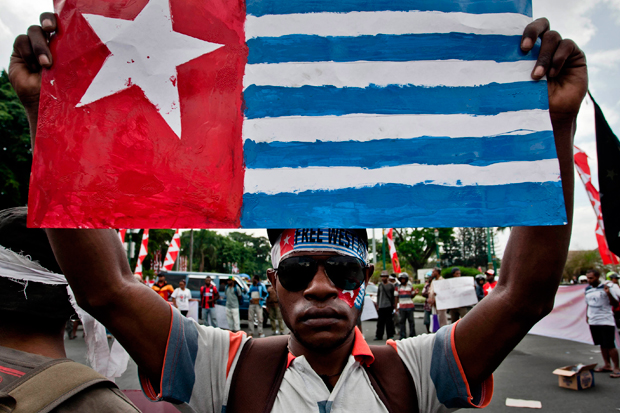
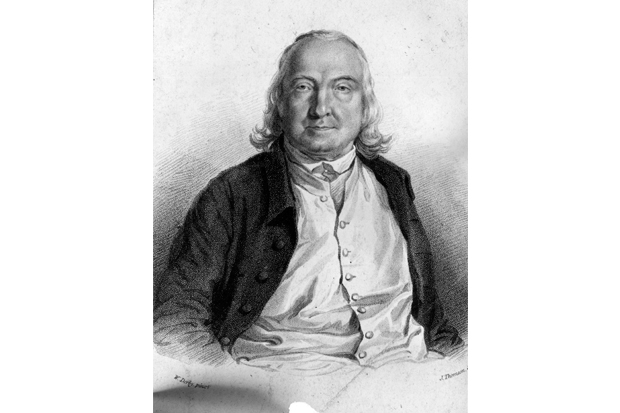
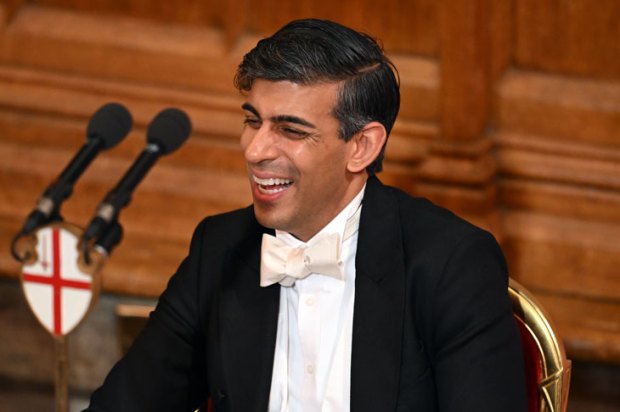
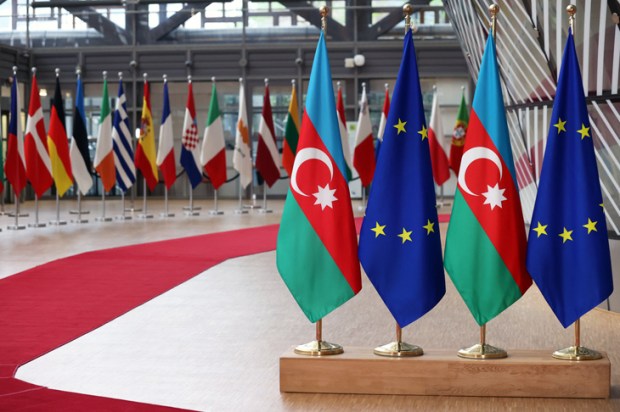
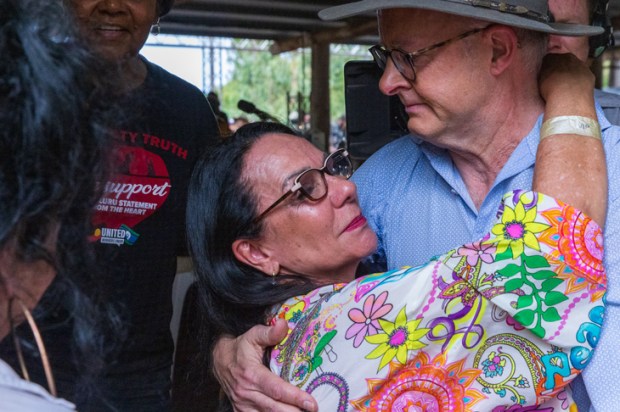
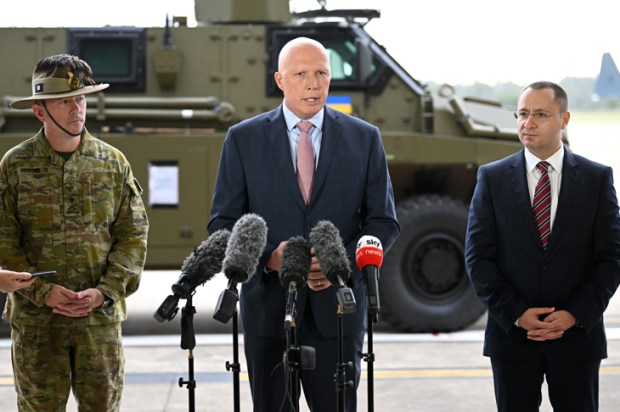
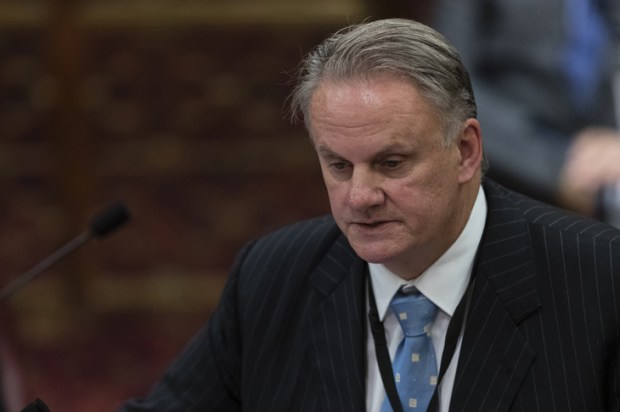






Comments
Don't miss out
Join the conversation with other Spectator Australia readers. Subscribe to leave a comment.
SUBSCRIBEAlready a subscriber? Log in